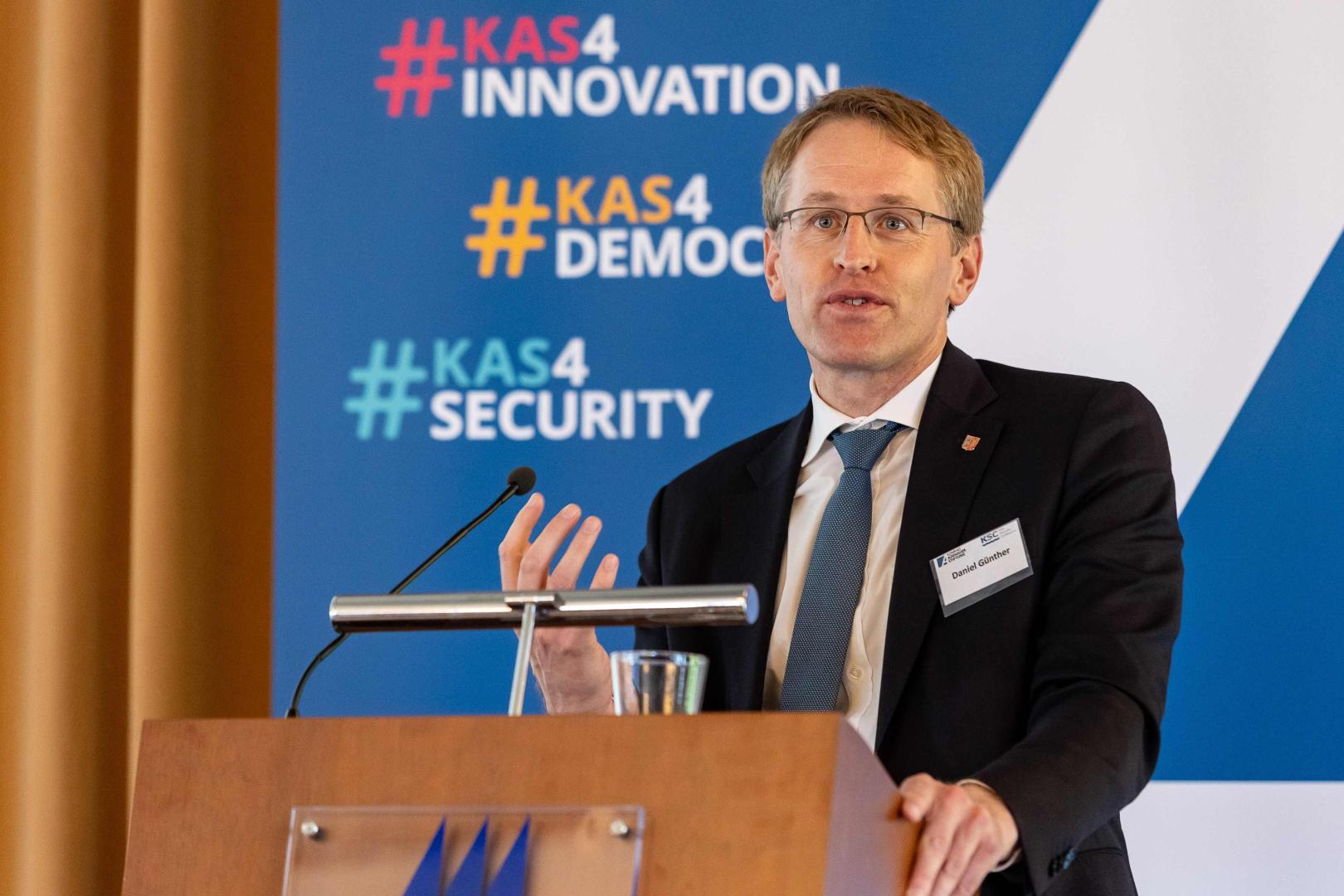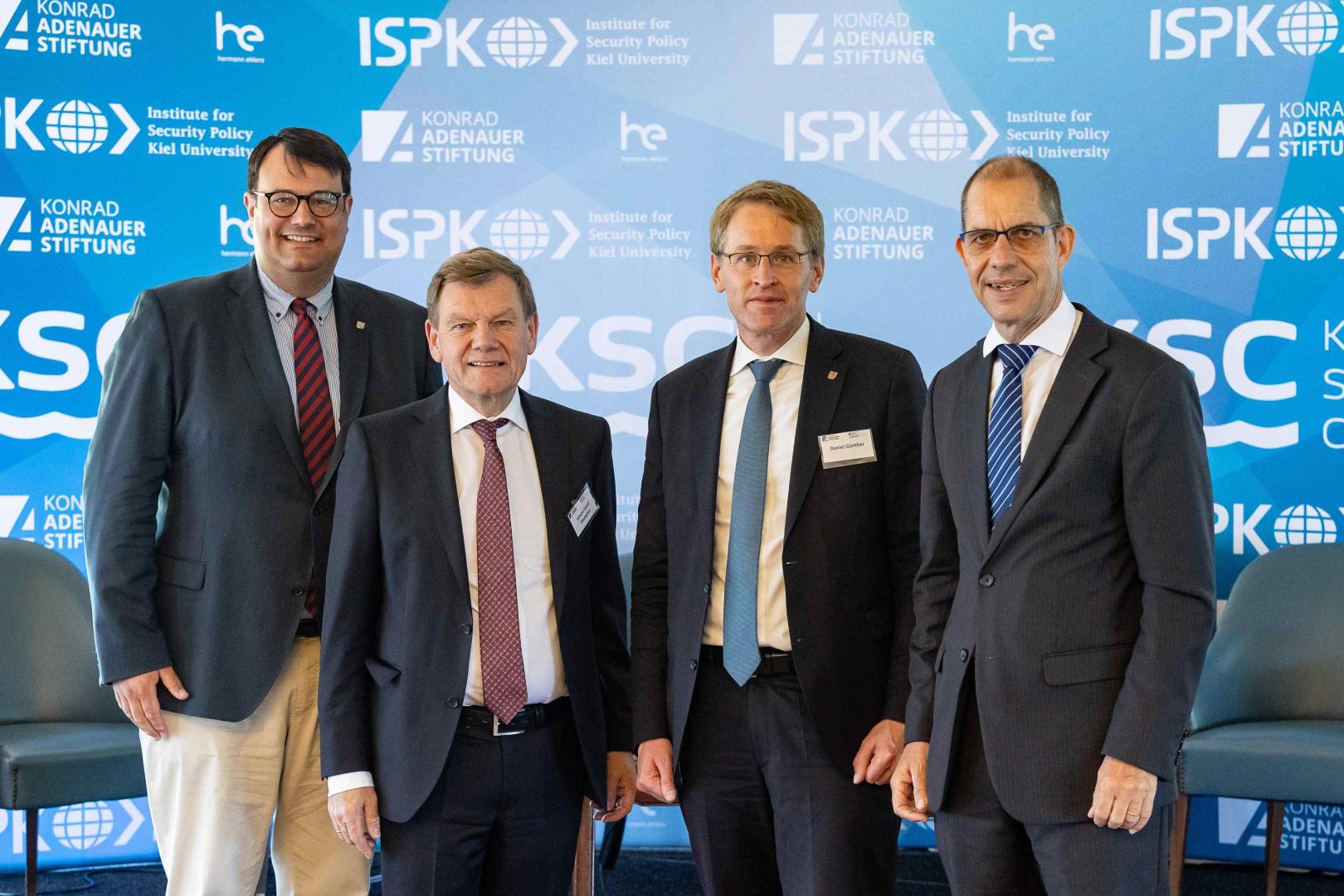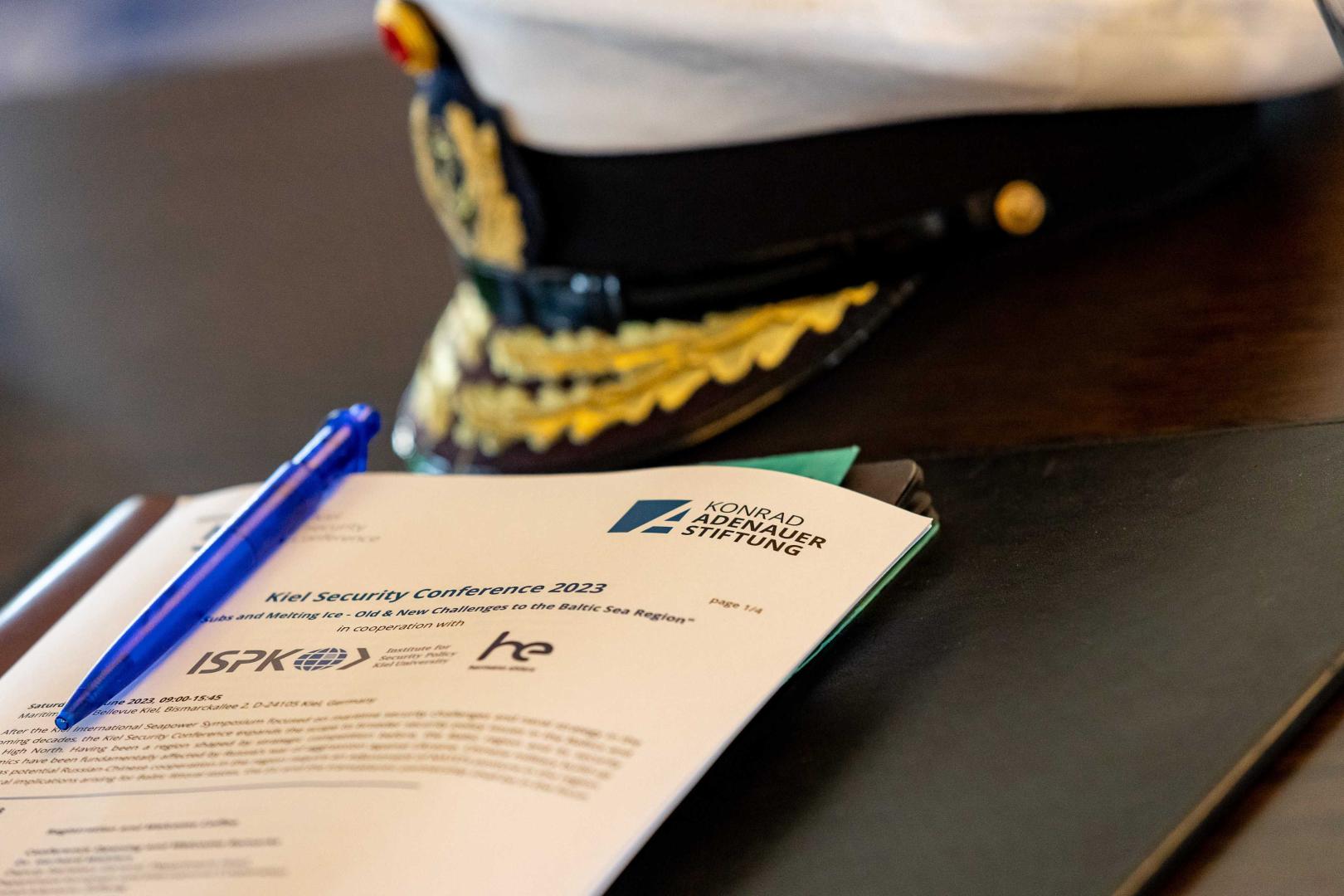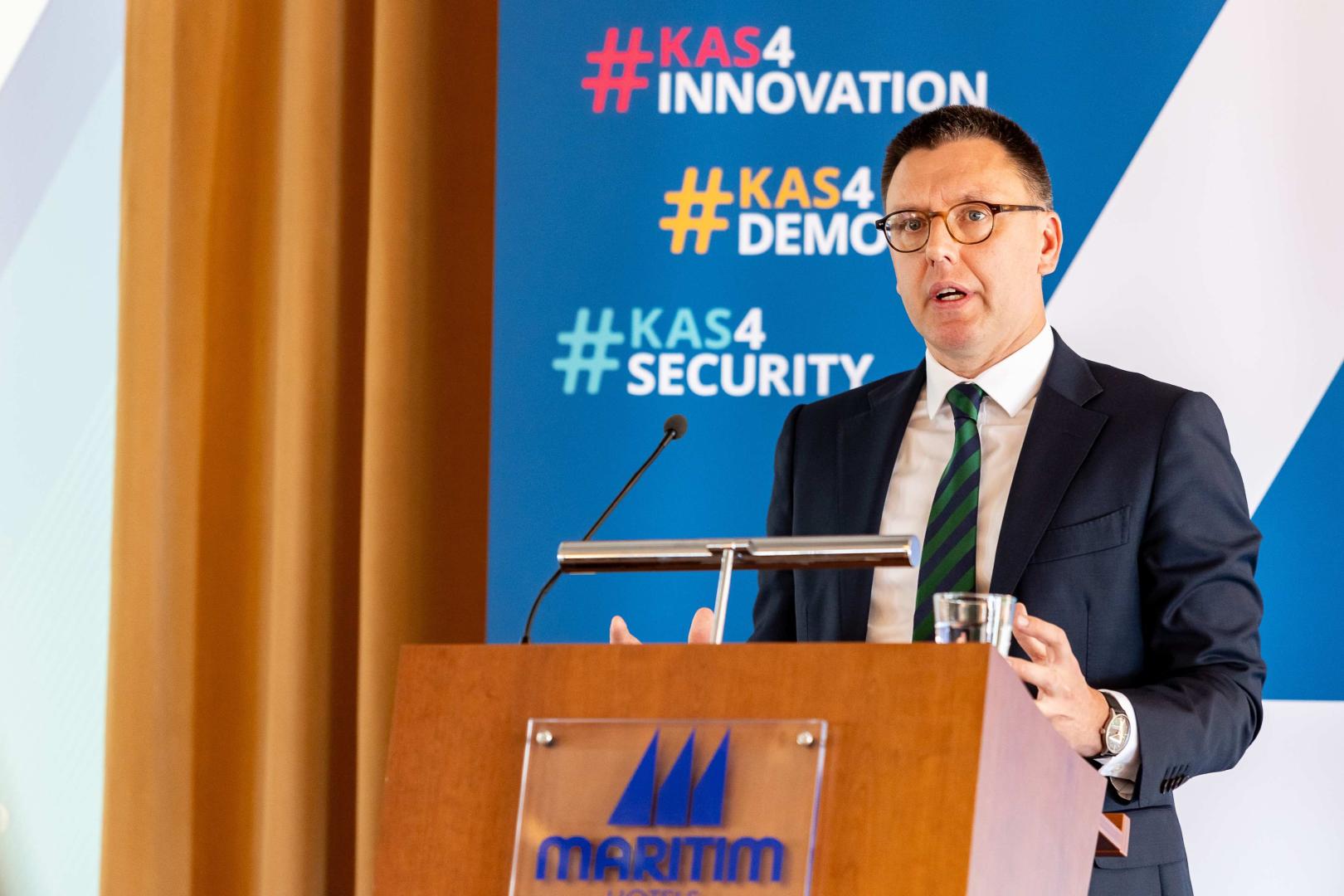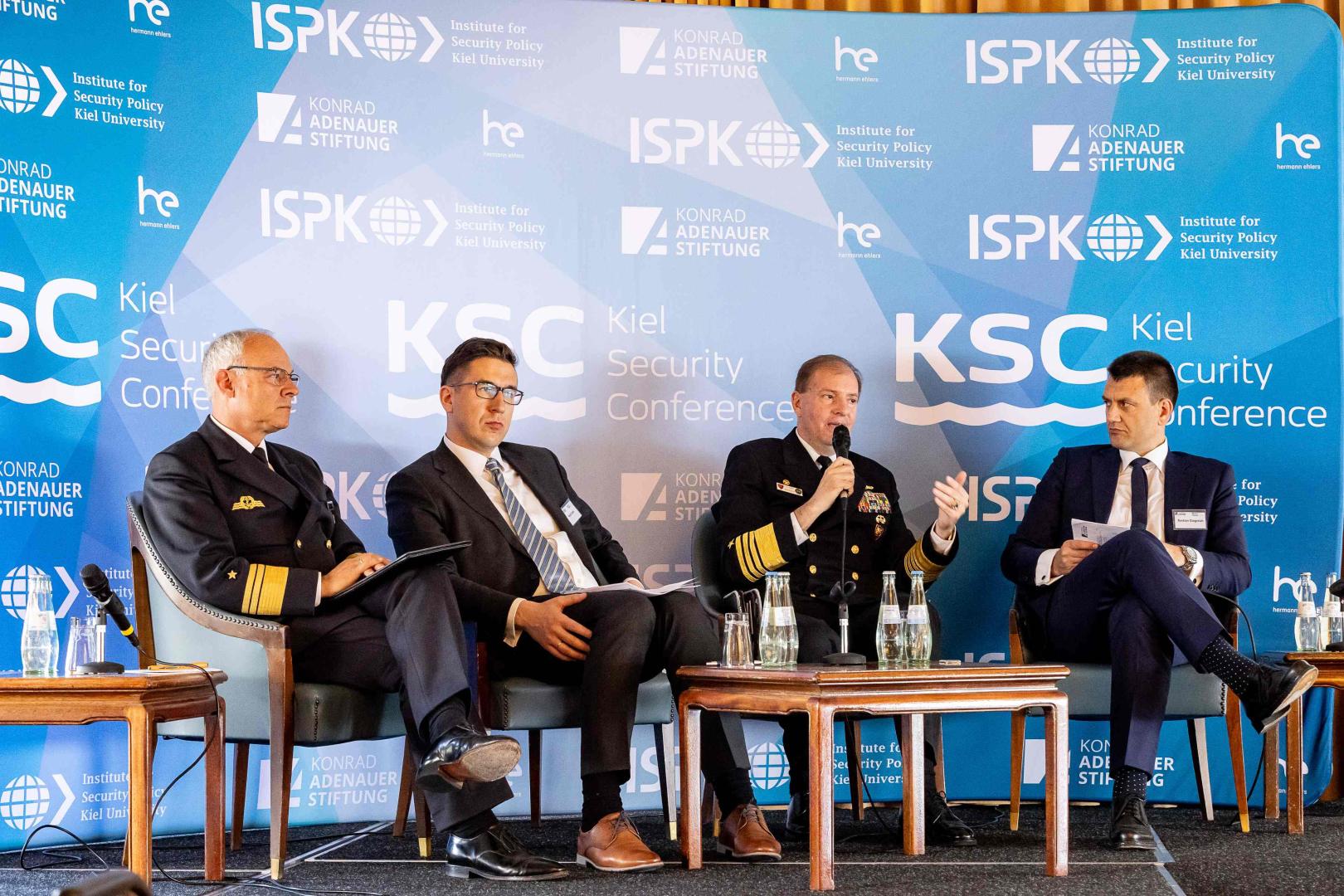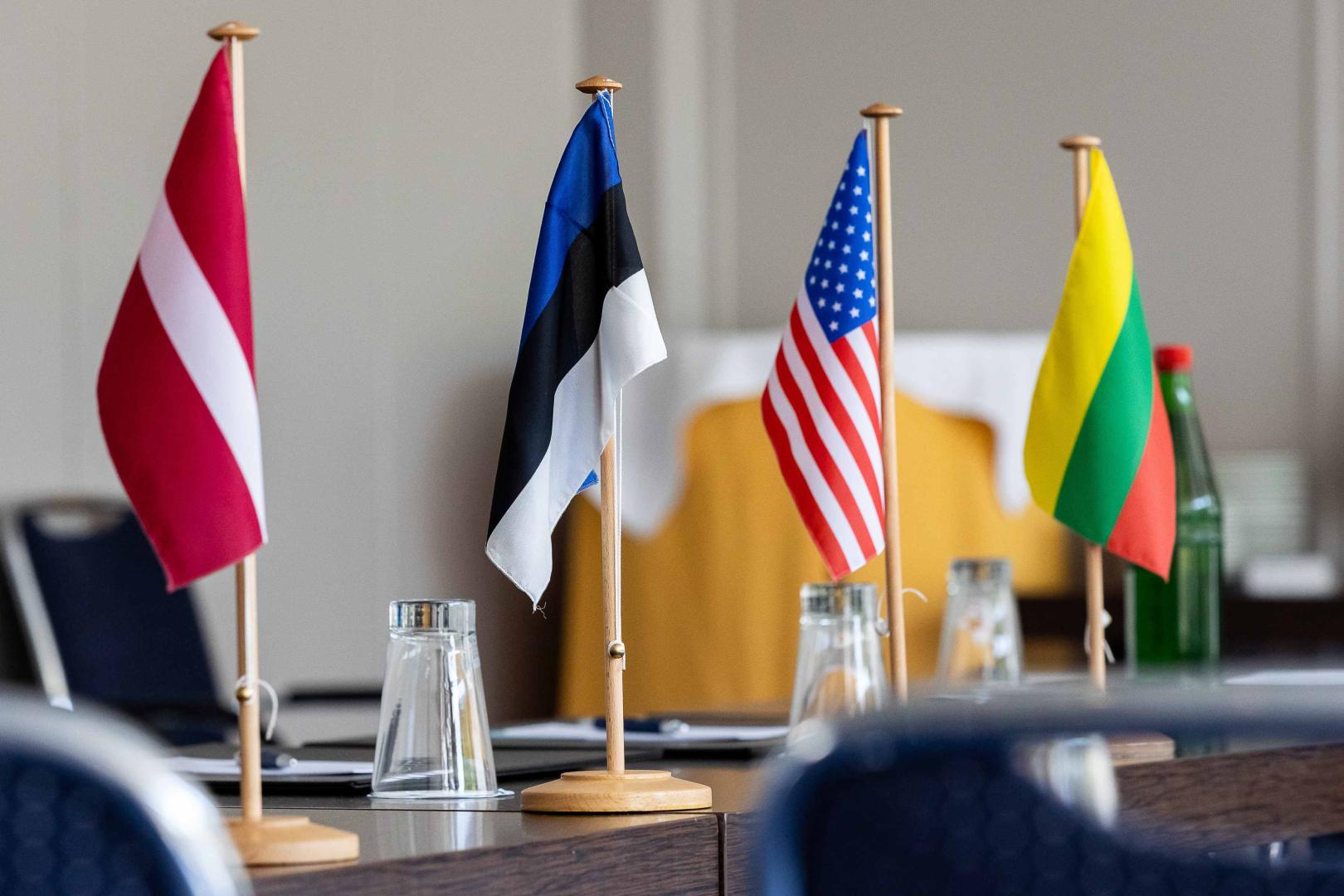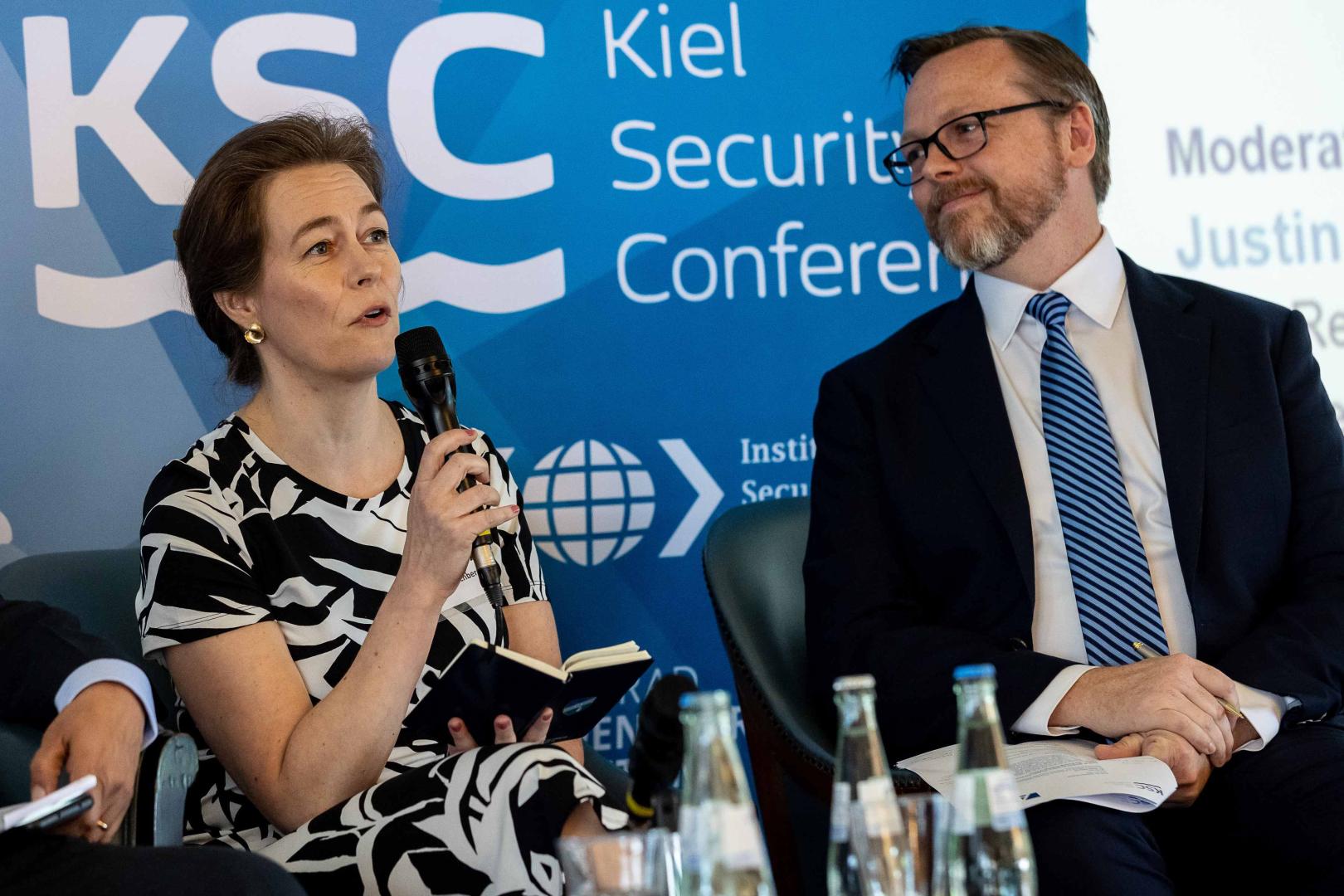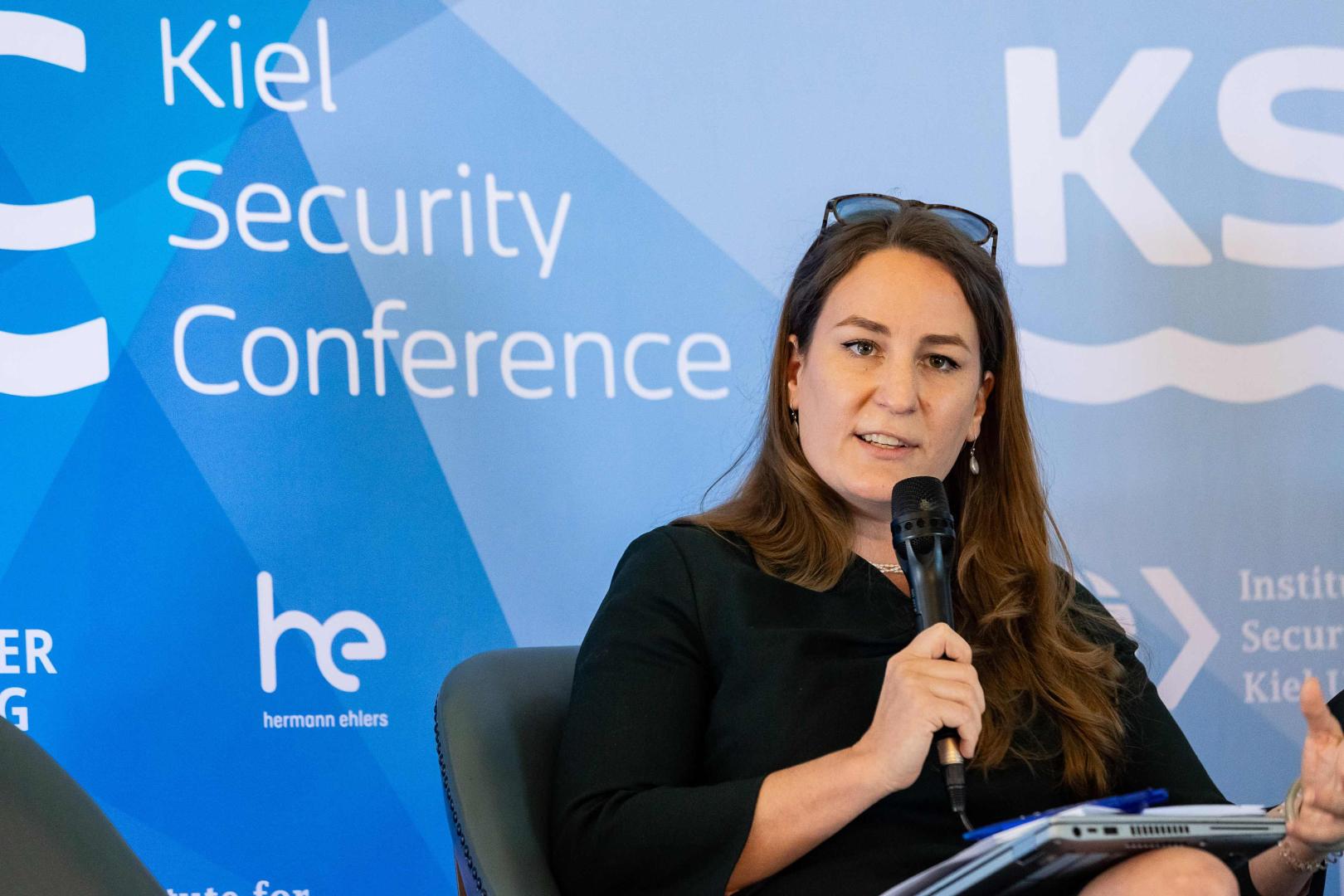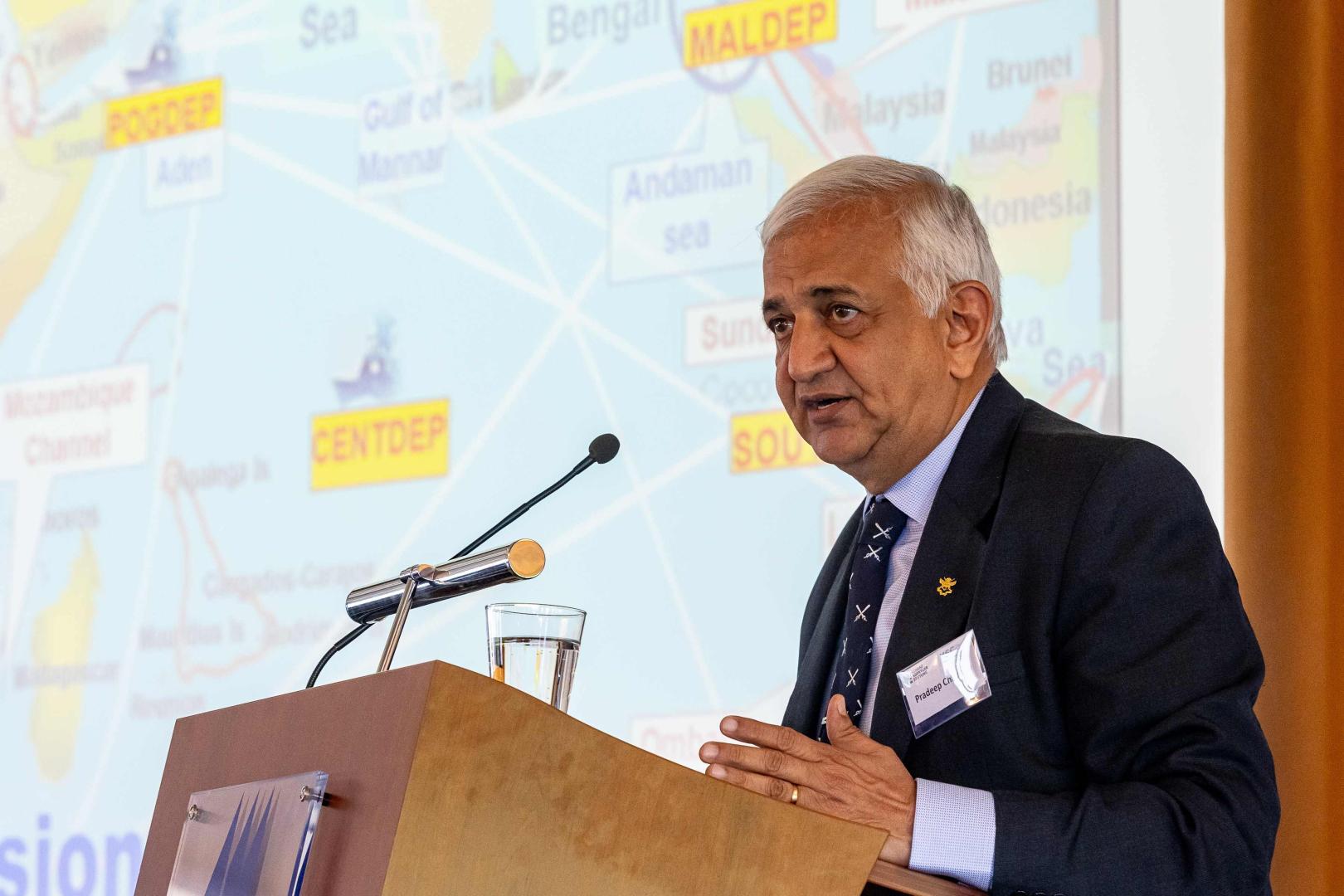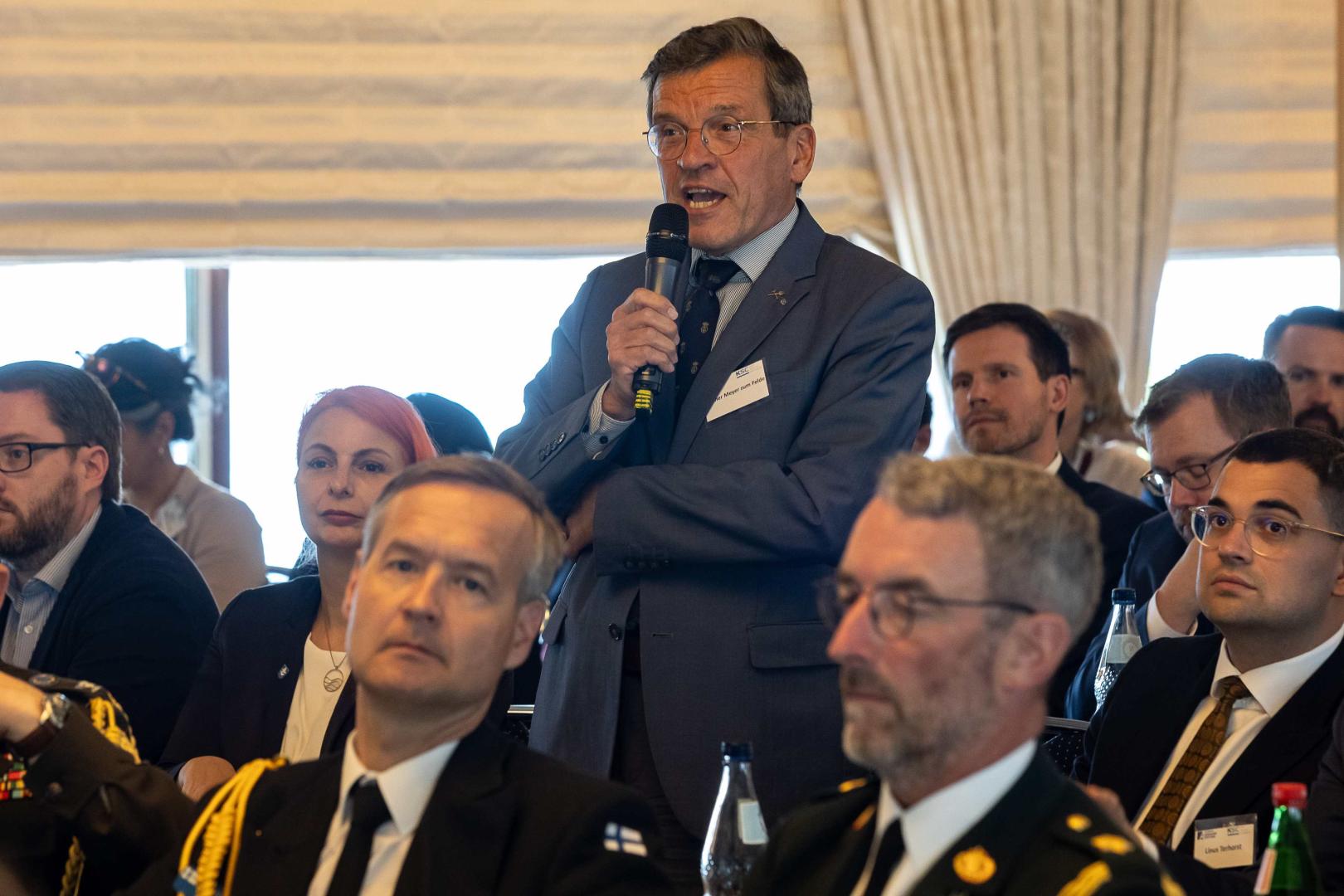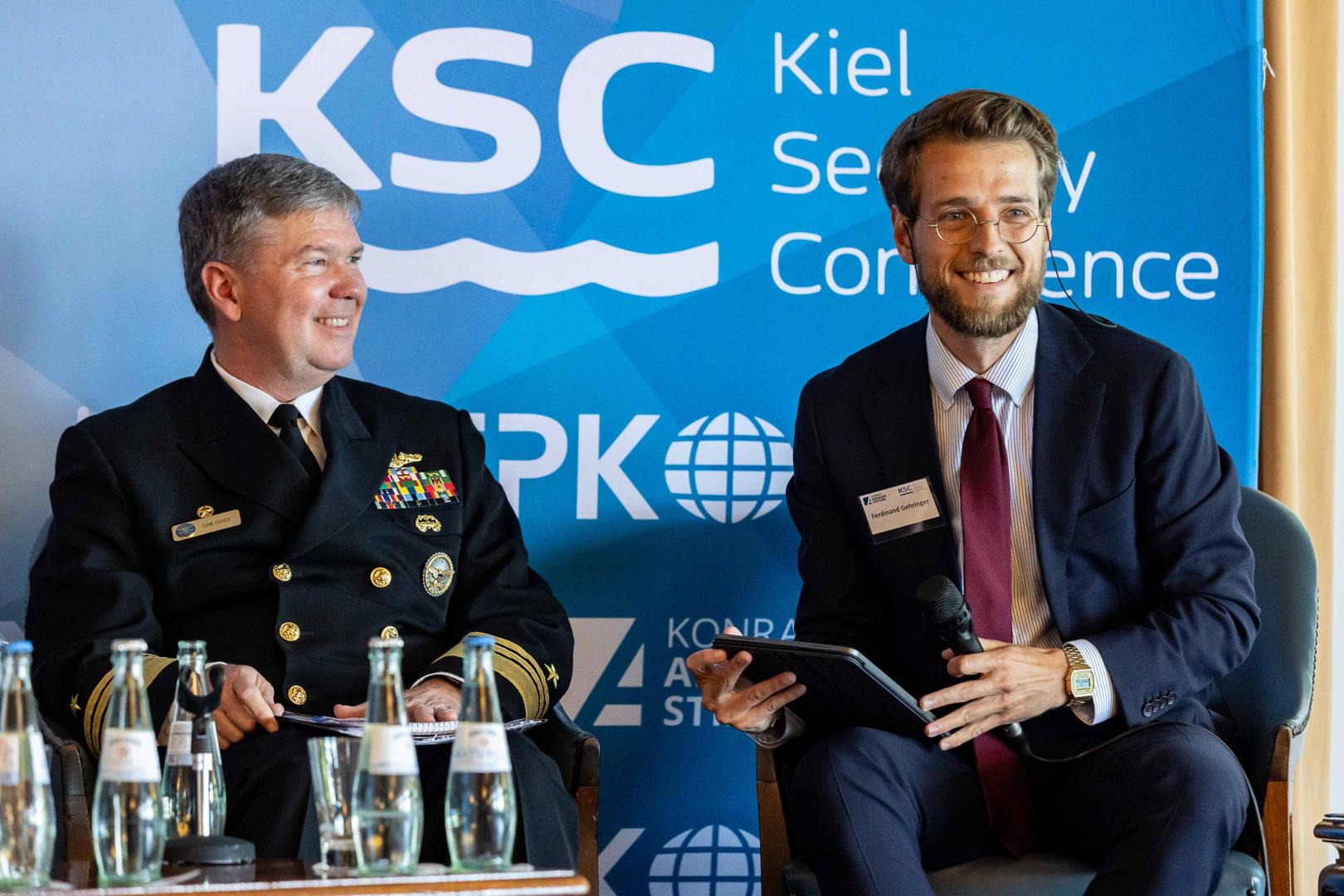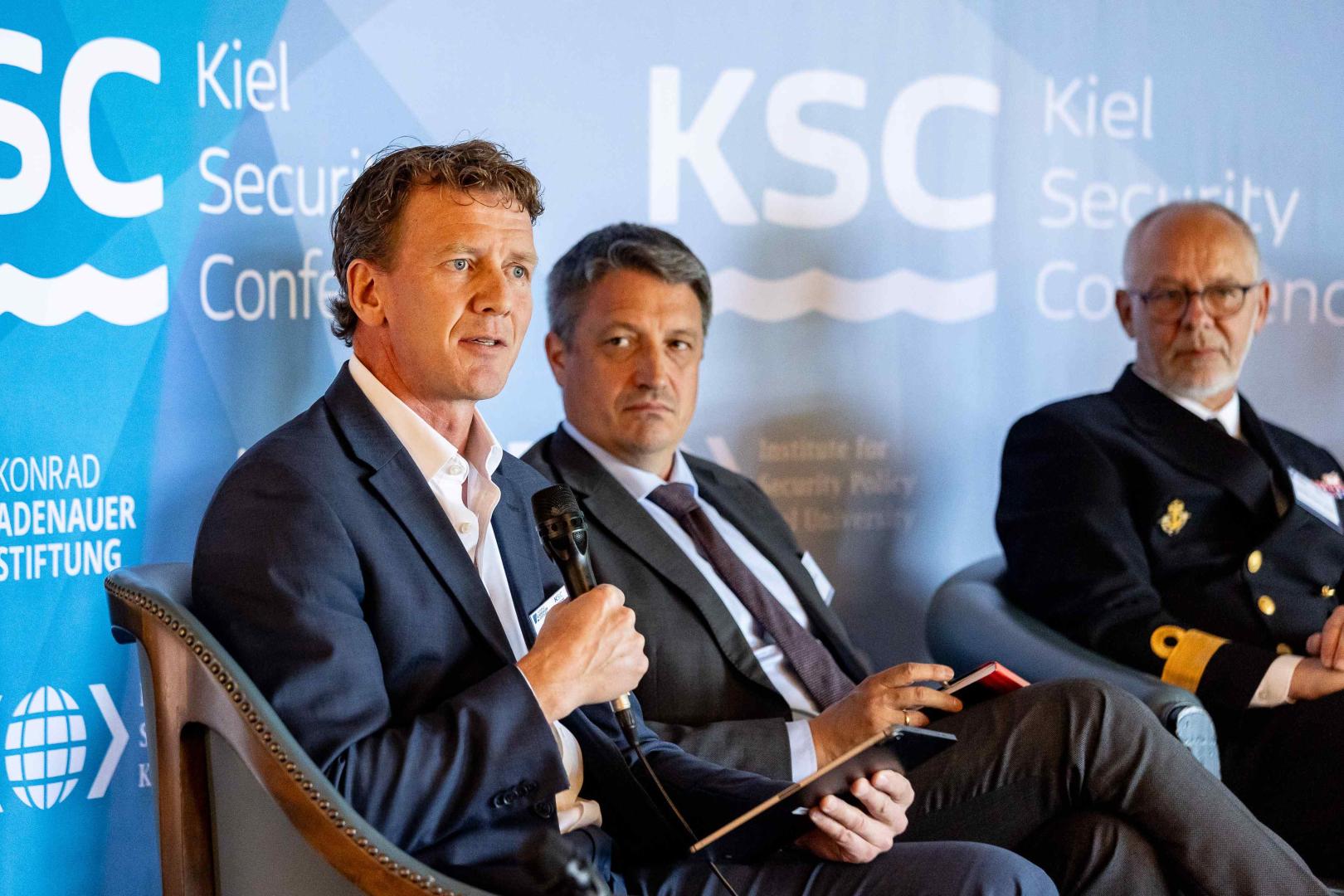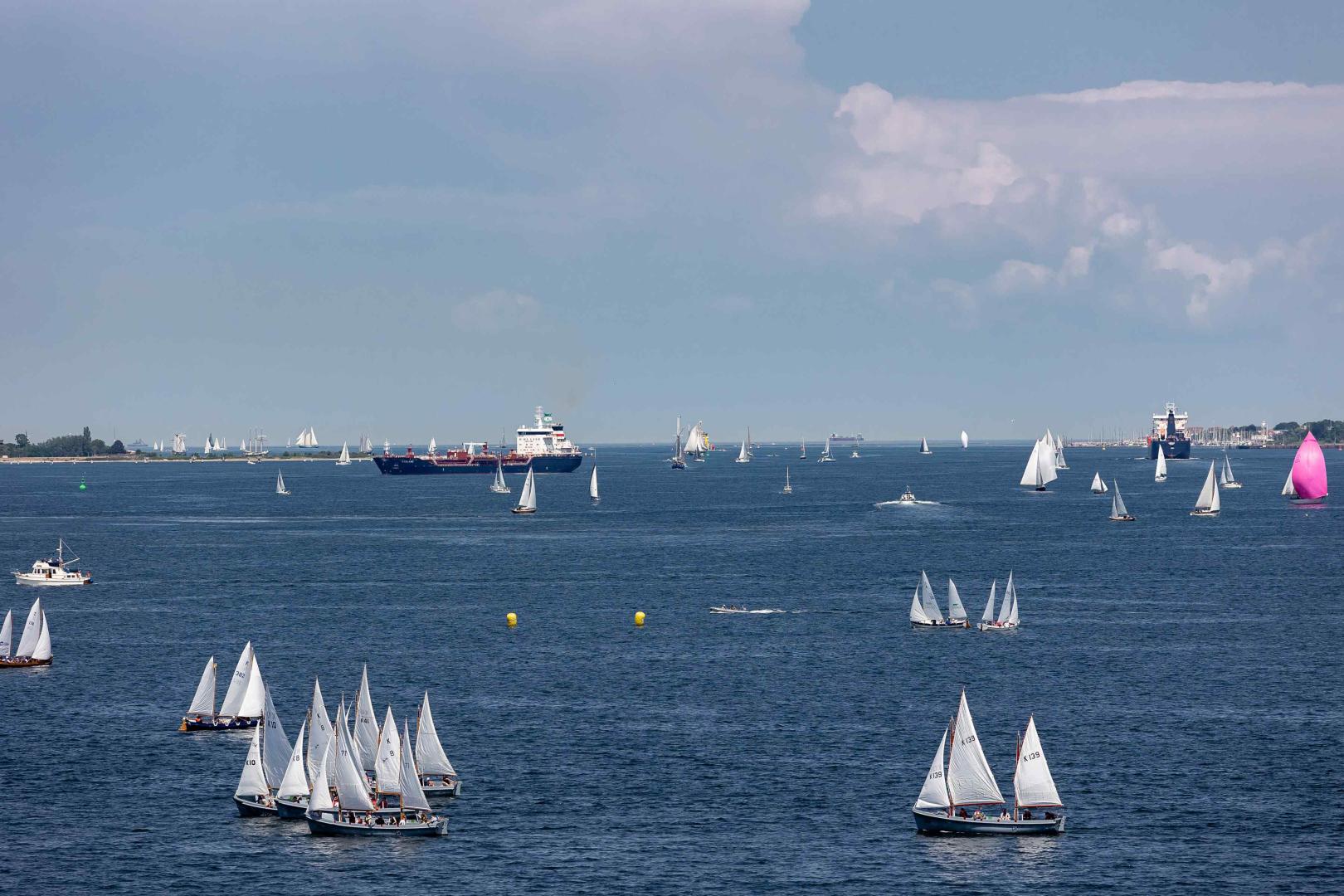Russia's war against Ukraine has immediate and fundamental implications for various aspects of maritime security, trade, communications and critical infrastructure protection. As a dominant security threat, this topic was present in most panels at the conference. China as a security factor with increasing influence in the Baltics as well as competition between the great powers in the Indo-Pacific region were also discussed. For centuries, maritime trade has connected the entire globe, which is why global interactions have increased many times over in recent decades.
The main topics of the conference were:
- The implications of Finland's accession as well as Sweden's application for NATO membership for security in the Baltic States.
- The defence of NATO's north-eastern flank and deterrence against Russian aggression
- The growing challenge from China
- The importance of protecting critical infrastructure such as internet cables, gas pipelines and power lines
Lasting Deterrence of Russia
According to the Estonian Permanent Secretary Kusti Salm, Russia is a threat to be reckoned with even after the end of the war. He expects Russia to reform militarily at some point in the future and seek revenge for its losses. The NATO summit next month in Vilnius, Lithuania, would be a crucial point to solve current problems and prepare for future threats. In this context, Žilvinas Tomkus, Vice-Minister of National Defence of Lithuania, called for adequate and sustainable funding for Euro-Atlantic security. He called for a 2% floor on defence spending for all NATO members as well as clear security commitments for Ukraine as it moves further into NATO. Furthermore, according to Lieutenant General Jürgen-Joachim von Sandrart, Commander of the Multinational Corps Northeast in Szczecin, Poland, the Alliance would need operationally feasible plans for different threat scenarios. Otherwise, deterrence against Russia would not succeed.
Admiral Stuart Munsch, Commander of US Naval Forces Europe-Africa and Commander of Allied Joint Force Command Naples, warned against considering the Baltics as a NATO sea after Finland's accession to NATO and against the background of Sweden's application for membership. He stressed that NATO had an interest in protecting the freedom of international waters and respecting international law. For him, three themes were central: mutual trust between partners, interoperability of equipment and capabilities, and warfighting advantage to deter Russia. NATO's goal, he said, is deterrence and defence. Defence against terrorist activities should, however, not be neglected either.
Transportation Hub Germany
Due to Germany's geographical location in the centre of Europe, it is often referred to as a hub for defence cooperation. In the event of a threatened attack on NATO's northeastern flank, reinforcements from partners would have to move through Germany. The Chief of the German Navy, Vice Admiral Jan Christian Kaack, pointed out the central role of the German Navy in this context. In order for the hub to work, supply routes need to be secured within the geographical area from the U.S. East Coast to the Baltic States. With an increase in hybrid activities, the boundaries between internal and external security are becoming increasingly blurred beyond clear geographical lines. He seconded Admiral Munsch in saying that with Finland's accession and Sweden's application for membership, international maritime law would continue to apply in the Baltic Sea as before and that NATO was fully committed to its validity.
The Minister President of Schleswig-Holstein, Daniel Günther, took up these points in his speech: for Schleswig-Holstein as a federal state between two seas, security on land as well as in, on and under the sea is essential. Germany must do its homework more quickly, e.g. in the area of procurement, in order to be a good partner in defence. For far too long, warnings from Baltic partners were not taken seriously and defence structures were dismantled instead of built up.
Watch Out for China
According to Meia Nouwens, Senior Fellow for Chinese Security and Defence Policy at the Institute for International Security Studies (IISS) in London, Europe needs to become more proactive instead of reactive in dealing with China. For Dr Sarah Kirchberger from the Institute for Security Policy at the University of Kiel (ISPK), it is problematic in this context that many Europeans are too little informed about Chinese influence measures - "smoking guns" would be dismissed, clear indications not put together into suspicions, which is why more cautious approach are largely missing. In this context, Indian Vice Admiral (ret.) Pradeep Chauhan considered it likely that China continued its massive engagement abroad. China's hunger for growth could not be satisfied by national demand. There were many examples of countries and regions that had previously sought peaceful relations with China but were nevertheless taken over by China's ambition to become a great power.
Nord Stream Incidents as „Game Changer“
The Nord Stream incident on 26 November 2022 shook up the Baltic Sea states and was a "game changer", according to Robin Allers of the Norwegian Institute for Defence Studies in Oslo. That day would be remembered in maritime circles as a game changer. The security of undersea infrastructure was high on the international agenda of the Euro-Atlantic navies, said Vice Admiral Thomas E. Ishee, Commander of the US 6th Fleet. In order to increases deterrence against future attacks, more needs to be invested in the capability to attribute such attacks. The Nord Stream blasts also showed the importance of good cooperation between different governmental and non-governmental agencies - in Norway this worked well due to flat hierarchies. According to Allers, Civil-military cooperation should not be underestimated either. Evan Fuery, Senior Vice President at the energy company Equinor, called for a clear, nationally defined answer to the question of what is corporate responsibility and what is state responsibility.
The conference was organised jointly with the Institute for Security Policy at Kiel University (ISPK) and the Hermann Ehlers Foundation (HEA).
Topics
About this series
The Konrad-Adenauer-Stiftung, its educational institutions, centres and foreign offices, offer several thousand events on various subjects each year. We provide up to date and exclusive reports on selected conferences, events and symposia at www.kas.de. In addition to a summary of the contents, you can also find additional material such as pictures, speeches, videos or audio clips.
No clear winner in the parliamentary elections in Kosovo: Forming a government will be complicated
China at the Munich Security Conference
Catch me if you can #CyberEdition: How to keep up with non-state hackers acting as digital proxies
Regime Change in Syria
Canada Faces the Threat of a Trade War with the USA in the Election Year!



